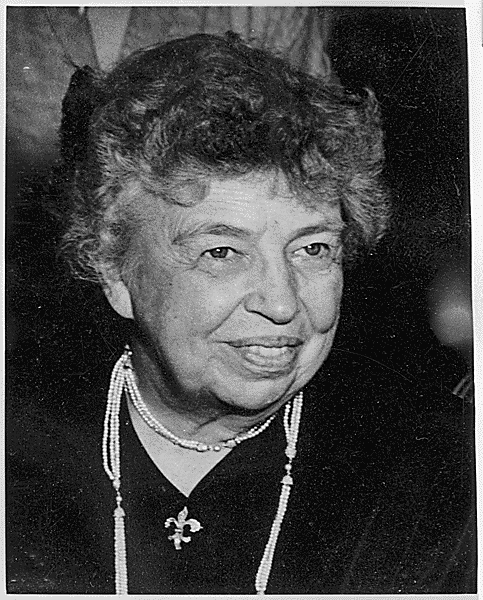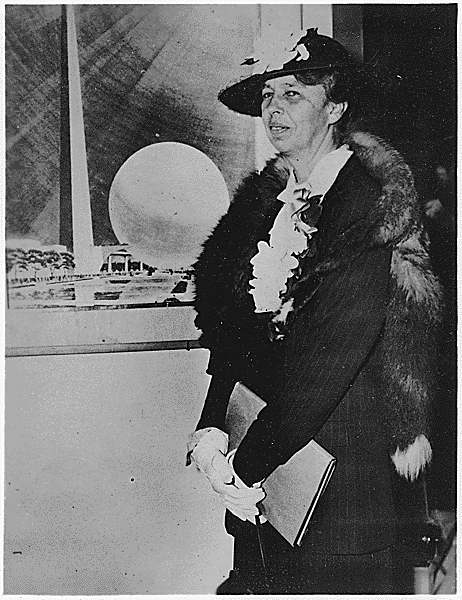

The Anglican Examiner |
| …tho’ the responsibility seems great I’ll just do my best and trust in God. —Eleanor Roosevelt to her daughter |
| Eleanor Roosevelt's Nightly Prayer |
| Copyright by Donn Mitchell, 2010 |
| The New York Anglicans: Twenty Who Shaped the Twentieth Century |
T


| The New York Anglicans is made possible through the generosity of the Historical Society of the Episcopal Church and the Episcopal Women's History Project. |
| what was then the nation’s most populous state, finally being elected to an unprecedented (and never since surpassed) four terms as President of the United States, carrying the nation through both the Great Depression and World War II. Each of her husband’s offices entailed a public role for Eleanor, as official hostess to be sure, but more importantly as chief confidant and liaison to the rank and file of the American public. It was in this role that Eleanor had a unique expertise acquired through her own efforts, many of which were well underway at the time she met her future husband. Conditioned by her mother to understand herself as “homely,” Eleanor began at a young age to identify with the “less loved” in society. This personal connection was strengthened by her nurture in a Christian tradition that emphasized community service and caring for the poor. Like her husband, Eleanor Roosevelt was a cradle Episcopalian from the Diocese of New York, arguably the most racially, culturally, and linguistically diverse U.S. diocese during the first half of the twentieth century. In addition to African- and Asian-Americans, the |
| Eleanor Roosevelt |
Presents
| Return to The New York Anglicans Welcome Page |
| Eleanor Roosevelt in 1939 |
later in Washington as
assistant secretary of
the U.S. Navy. He
was subsequently
elected governor of
assistant secretary of
the U.S. Navy. He
was subsequently
elected governor of
| diocese numbered in its membership Haudenosaunee (Iroquois) Indians, Italian immigrants, and countless others. At the dawn of the twentieth century, the diocese was able to boast that the Eucharist was celebrated every Sunday in nine different languages. |
The Anglican Examiner, Copyright by Donn Mitchell, 2010. |
hose words, exuding quiet confidence, were written in 1946 by a very frightened
woman. At the age of 61, Eleanor Roosevelt had just set sail for London to begin the
woman. At the age of 61, Eleanor Roosevelt had just set sail for London to begin the
most formidable job she would ever undertake as part of the U.S. delegation to the first meeting
of the General Assembly of the newly formed United Nations.
of the General Assembly of the newly formed United Nations.
This woman was no stranger to high-level responsibility in the public eye. As the right hand of
her husband, she had had semi-official responsibilities through most of her adult life.
The niece of President Theodore Roosevelt, Anna Eleanor Roosevelt had married her fifth cousin
once removed, Franklin Delano Roosevelt, who had served in the New York state senate and
her husband, she had had semi-official responsibilities through most of her adult life.
The niece of President Theodore Roosevelt, Anna Eleanor Roosevelt had married her fifth cousin
once removed, Franklin Delano Roosevelt, who had served in the New York state senate and
| The Roosevelts’ bishops had included Henry Codman Potter, who once said that if he had to work under the conditions of New York’s industrial masses, he would go on strike, too; David Greer, who studied Yiddish to better understand the immigrants in his midst; Charles Sumner Burch, who confirmed women in prison; and William Thomas Manning, who once took an axe to the door of a parish church determined to exclude African-Americans. |